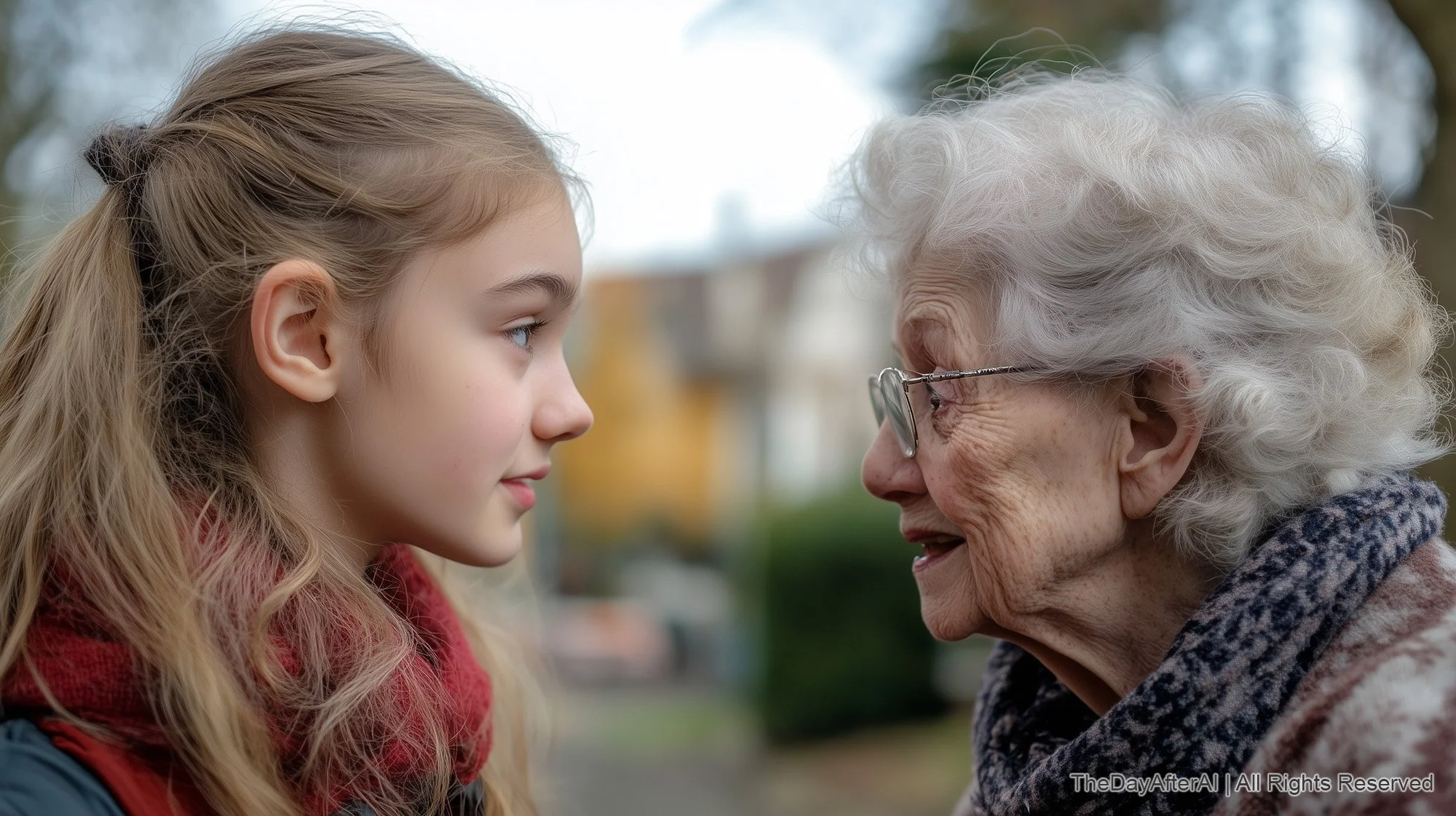MIT’s Future You: AI Chatbot Lets You Talk to Your Older Self
Image Credit: Jacky Lee | Art Director, TheDayAfterAI News Channel
In an innovative leap forward, researchers at the MIT Media Lab, in collaboration with international partners, have unveiled a groundbreaking AI-powered chatbot that allows individuals to engage in conversations with a simulated version of their older selves. This pioneering project, aptly named Future You, offers users a unique opportunity to reflect on their lives, aspirations, and future pathways through an interactive and personalized experience.
Bridging the Present and the Future
The Future You project leverages advanced artificial intelligence to create a lifelike simulation of what users might look like in their 60s or 70s. By utilizing an image generation model known as StyleClip, the system transforms a user's current selfie into a realistic portrayal of their future self, complete with age-related features such as wrinkles and gray hair. This visual component serves as a compelling anchor, making the interaction with one's future persona both tangible and relatable.
Personalized Conversations Tailored to Your Life
At the heart of Future You lies a sophisticated chatbot powered by OpenAI's GPT-3.5. Users begin by providing detailed information about their current life circumstances, including demographic details, personal goals, and future concerns. This data forms the foundation of what the researchers call "future memory", an architecture that synthesizes individual responses with a broader dataset of life experiences related to careers, relationships, and personal growth. The AI then adopts a persona that mirrors the user's envisioned future self, enabling meaningful and personalized dialogues. Whether seeking advice on achieving long-term goals or navigating current challenges, users can engage in thoughtful conversations that reflect their unique aspirations and circumstances.
Enhancing Well-Being and Motivation
Initial studies involving 344 participants aged between 18 and 30 have shown promising results. Users reported a notable decrease in anxiety levels, increased motivation, and a stronger sense of connection with their future selves after interacting with the chatbot. By providing a concrete and interactive representation of the future, Future You transforms what could be anxious rumination into productive and inspiring dialogue.
Safeguarding User Experience
Understanding the potential emotional impact of conversing with a future self, the Future You team has implemented several safeguards. The system consistently reminds users that the interactions represent one possible future scenario based on their current inputs. This approach ensures that users remain aware of the variability and uncertainty inherent in predicting the future, thereby mitigating any negative implications that might arise from the conversations.
A New Horizon for Decision-Making
The concept of future self-continuity—the psychological connection between one's present and future self—plays a crucial role in long-term decision-making. By strengthening this connection, Future You has the potential to positively influence how individuals make choices that affect their future well-being and success. This innovative application of AI not only enhances personal reflection but also empowers users to take proactive steps toward realizing their desired futures.
Expert Insights and Future Prospects
Experts in the field have lauded the Future You project for its unique blend of psychological principles and cutting-edge technology. Jeremy Bailenson, director of the Virtual Human Interaction Lab at Stanford University, highlighted the project's significance in merging virtual self-models with large language models, paving the way for future academic and technological advancements. As AI continues to evolve, projects like Future You demonstrate the profound ways in which technology can enhance human self-awareness and personal growth. By enabling conversations with a simulated future self, this innovative platform opens new avenues for introspection, motivation, and informed decision-making, ultimately fostering a deeper connection between who we are today and who we aspire to become.
[See our previous report: Unlocking the Power of Self-Awareness with AI-Driven Physiognomy]
Source: Live Science

